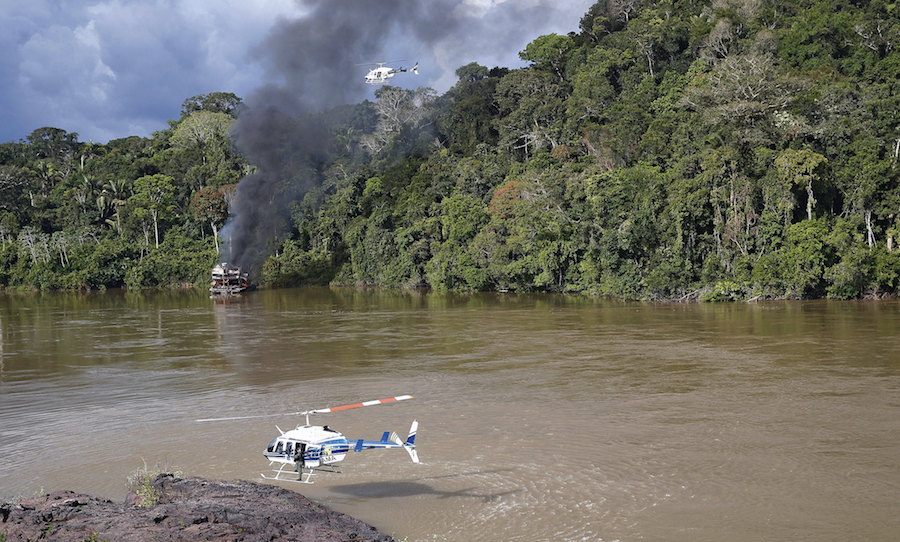Illegal Amazon miners are expanding into copper as prices surge

Authorities in Brazil are cracking down on illegal copper mining in the Amazon as high prices of the wiring metal attract black-market operators who normally focus on gold.
Earlier this month, 50 agents dismantled illicit mines in Canaa dos Carajas — near Vale SA’s biggest copper mine, Sossego — after two similar actions last year. There are signs the metal has been shipped to China, task-force leader Ezequias Martins said via his press office. The case may lead to convictions for environmental crimes and criminal association, he said.
Unlicensed miners, known in Brazil as garimpeiros, have diversified into copper in recent years as techniques improve and prices surge on growing battery-metal demand in the shift away from fossil fuels. At the same time, major mining companies are looking to add copper assets. Vale wants to raise money to grow its base metals business.
While illegal production accounts for a tiny portion of total copper supply, it can have an outsized impact on the environment and indigenous communities. President Luiz Inacio Lula da Silva’s government has vowed to crack down on Brazil’s illegal gold rush, with non-government organization MapBiomas estimating that irregular operations now occupy a larger area than industrial mines in the country.
The clandestine copper mines demobilized this month are the so-called gallery type, in which explosives are used to blast out ore containing copper and gold. Some galleries can extract 30 tons a day. Copper trades at about $9,000 a ton in London versus less than $5,000 three years ago.
The environmental and community damage caused by such practices are a threat to the formal industry by tarnishing the reputation of mining in general.
Read More: New tool could help Brazil’s crack down on illegal gold mining
The illegal mining push has started to encroach into land held by Vale, the world’s No. 2 iron ore producer and a major supplier of nickel and copper. With illicit miners now hunting for copper, Vale has reinforced monitoring and provides intelligence to regulator ANM on clandestine operations on its land, the company said in response to Bloomberg questions.
“In addition to constituting a crime, the practice imposes drastic impacts on the environment, public coffers, security and the attraction of investments and the implementation of new enterprises,” Vale said.

(By Mariana Durao and James Attwood, with assistance from Joe Deaux)
{{ commodity.name }}
{{ post.title }}
{{ post.date }}




Comments